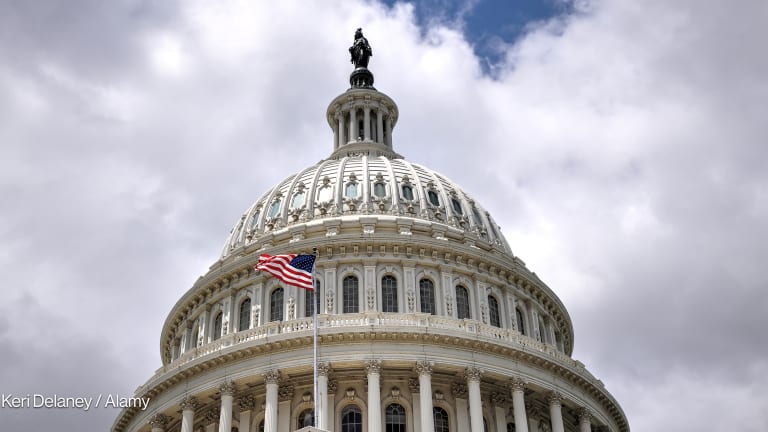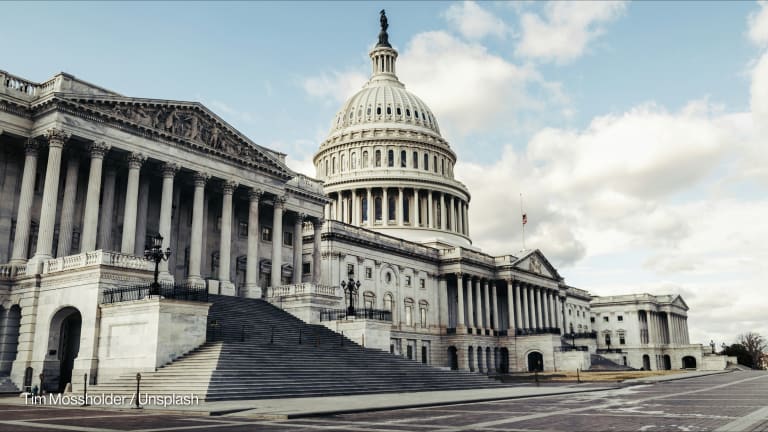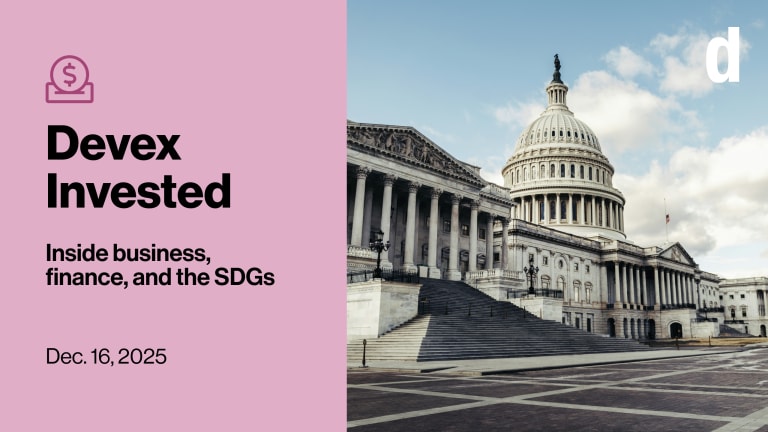
Roughly one year ago in a rare display of bipartisan commitment and cooperation, U.S. Congress passed the BUILD Act, or the Better Utilization of Investment Leading to Development Act. That legislation will create a new and improved U.S. International Development Finance Corporation that will enable the United States government to encourage and support more private sector investment in low- and middle-income countries around the world.
It will provide our government with all the tools that other development finance institutions have in North America, Europe, and Asia, strengthen our capacity to fight poverty through private sector-driven development and help the U.S. compete more effectively with China.
Catch up on US DFC
►Failure to launch: Why congressional budget drama delayed US DFC
Congress very wisely doubled the number of total commitments US DFC can make over the next several years from $29 billion to $60 billion. It also provided the corporation with the authority to not only finance transactions, but also take equity positions in selected funds and business deals, and it gave the corporation the ability to provide small grants or technical assistance to support projects which appear very promising, but which need help to make them financeable and scalable.
In addition to the new legal authorities that the BUILD Act provided DFC, the legislation is also very explicit about the importance of maximizing the developmental impact of every transaction so that the success or failure of a project is not just measured in profit or loss, but also in terms of the social, economic, and environmental impact, among other metrics. Indeed, the legislation is so intent on maximizing the impact of each project that it calls for the appointment of a “chief development officer” to constantly monitor and evaluate the progress.
Part of the reason why the BUILD Act garnered such broad bipartisan support is that it met so many objectives shared by various political and philosophical interests. Among them, it recognizes the increased importance of private sector investment as a means of fighting poverty, it strengthens the economic diplomacy toolkit that is a critical part of American foreign policy, it creates a framework for competing with China on our terms rather than theirs, and it legitimately enables the U.S. to claim that it has the most innovative and entrepreneurial development finance institution in the world.
Having passed this landmark legislation almost a year ago and established the date of Oct. 1 of this year for many of DFC’s authorities to take effect, Congress now must finish the job.
If it wants to double the capacity of DFC from the current $29 billion in business to $60 billion, it needs to provide the funding for the corporation to expand responsibly. If it wants to increase the developmental impact of projects and measure their progress more consistently, then it needs to provide the resources for the corporation to comply with those expectations. If Congress wants the new DFC to provide both financing and equity for developmental funds and projects, and to be taken seriously by China and others in terms of the scale of our engagement, then it must allow the corporation to start with at least $1 billion of equity authority using a net present value model so that only 5% of that $1 billion needs to be provided in direct appropriations in the form of a loan loss reserve.
The legislation provides that up to 35% of the $60 billion portfolio of investments by DFC can be made in the form of equity. That’s $21 billion. Starting with $1 billion of equity authority is a minimum bid to be taken seriously.
At the moment, neither the administrative funding for fulfilling the obligations of the corporation nor the authority to use 5% of a $1 billion, or $50 million of direct appropriations to serve as a loan loss reserve for $1 billion of equity investments, has been budgeted by Congress. If that commitment is not made soon, DFC will embark upon its new responsibilities seriously inhibited by these legal and fiscal constraints.
The BUILD Act was a great accomplishment that represents the best in bipartisan collaboration. As we approach the effective date of much of the BUILD Act’s provisions, it would be tragic if Congress does not provide the corporation with the ability to meet the high expectations it set. Time is of the essence and the Chinese are not waiting for us to sort this out.








